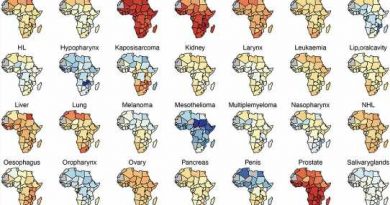4medica to help HIE tackle patient data challenges in East Tennessee
To improve patient matching and health data quality, 4medica will conduct a thorough assessment of the East Tennessee Health Information Network’s health data quality and then run the data through a 4-layer master patient index.
WHY IT MATTERS
The Marina Del Rey, California-based data management company says the data quality platform can reduce patient duplication rates to less than 1%, according to the announcement.
etHIN reaches 80% of communities within its region of Tennessee and has patient records from all of the state’s 95 counties as well as patients from other states who were treated in the area.
The HIE needed support to help identify the source of its data challenges and improve the quality of data it receives from healthcare organizations and other sources, according to Pam Matthews, CEO and executive director of etHIN.
“4medica’s expertise will enable us to be better data stewards for our participants and partners across Tennessee and help improve the quality of care delivered by providers relying on our data,” she said.
“We’re excited to be working with etHIN and its upstream data partners to reduce duplicate records, improve health data quality and produce better outcomes for the individuals and communities the organization serves,” Gregg Church, 4medica president, added.
THE LARGER TREND
The company says patient record duplication rates can reach as high as 30% in some health organizations.
When clinicians and labs struggle to locate patient information, “they often opt to create another file for the patient rather than spend more valuable time searching,” 4medica said in the announcement.
A new patient record may lack important clinical information included in the existing record, while the older record won’t include data added to the new record. Or, half the patient notes might be duplicated in new records.
Using natural language processing, researchers have found that 50% of the records contained duplicated patient notes.
Last year a team from University of Pennsylvania Perelman School of Medicine in Philadelphia used artificial intelligence to study the level of “note bloat” in five years of anonymized patient records.
Church told Healthcare IT News that AI can assist providers in establishing clean health records.
After 4medica studied COVID-19-related patient records, including paper requisitions taken by labs, the company found cases of three or four records for an individual that may have resulted in higher costs for healthcare organizations and increased risk for patients.
ON THE RECORD
“At the end of the day patient lives are at stake and we know when HIEs have the tools at their disposal to receive good data they can make meaningful change for healthcare in their communities,” Church said in the statement.
“Ultimately, patients are the single most important beneficiary because quality data improves the care they receive from their providers,” said Matthews.
Andrea Fox is senior editor of Healthcare IT News.
Email: [email protected]
Healthcare IT News is a HIMSS publication.
Source: Read Full Article



